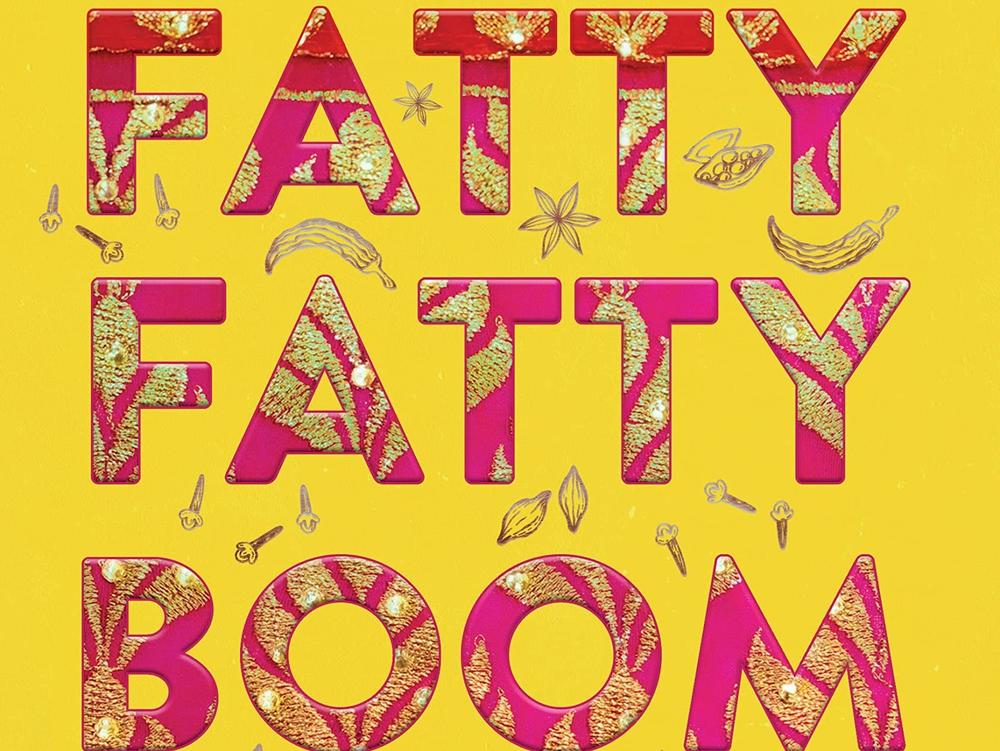Section Branding
Header Content
'Fatty Fatty Boom Boom' details podcaster's battle with weight
Primary Content
Pakistani-born lawyer and media personality Rabia Chaudry is best known for co-hosting the popular Undisclosed podcast — and for her tenacious advocacy for wrongfully convicted family friend Adnan Syed, whose case was featured on Sarah Koenig's 2014 Serial podcast.
In a quirk of unexpected timing, Chaudry's memoir about a more personal struggle — her lifelong battle with her weight — is out just weeks after Syed's long-sought exoneration and release from prison. Like many memoirs about personal demons, Fatty Fatty Boom Boom delves into the author's childhood to give a candid account of her various mortifications, of the flesh and otherwise.
Chaudry describes how she became addicted to calorie-dense junk foods after her family moved from Pakistan to America, "the land of edible convenience," when she was a baby. After being bottle-fed with half-and-half and teething on frozen sticks of butter, she moved on to cheap white bread and fast foods. The takeout lineup wasn't all bad: It helped her learn to read by the age of 4 — A is for Arby's, B is for Burger King, C is for Coca-Cola, and so on.
By the time she visited extended family in her native Lahore at 2, she was seriously chubby. When she returned again at 11 for an aunt's wedding, relatives were alarmed by her heft. In a culture in which overweight and dark-skinned girls were considered less marriageable, she had two strikes against her. She learned that weight standards for men and women were not the same. A paunchy uncle spelled it out for her: "Men can look like anything, as long as they have good jobs. But girls cannot look like middle-aged women before they're even married."
The book's title comes from what another overweight relative fondly called her over breakfast in Lahore one morning. Other, less kind comments about her body were seared into Chaudry's memory. When she was separated from Zuba Aunty in a crowd and nearly missed their bus, someone yelled to her panicking aunt, "Don't worry lady, your baby buffalo made it."
Chaudry self-soothed with food, which added padding and in turn fed her self-loathing. She made it through law school as a young mother and abused wife on a furtive diet of fast food washed down with supersized Cokes before rushing home to cook for her in-laws. In the early months of her happier second marriage, she and her husband, a fellow foodie, each gained back the weight they had lost for their wedding. They continue to support each other through two children and, as she puts it in her dedication to him, "through literally thick and thin."
Chaudry writes that her determination to change the way she looked was amplified by her dismay at what she saw in the coverage surrounding her 2016 book, Adnan's Story, and the HBO documentary about it. "When you're a female public personality and people don't like your ideas, it's often your looks that get targeted, low-hanging fruit for the trolls," she writes.
Fatty Fatty Boom Boom is dedicated "to all those who have spent their lives being judged — and judging themselves — for their weight." Many readers will eat it up, finding consolation in Chaudry's story. But even those who, like Chaudry, have felt "trapped on the perpetual hamster wheel of weight loss and gain," may tire of the minutely chronicled binges and weigh-ins.
The fact is, there are far more interesting things about Chaudry — and this book — than her weight. For starters are her evocations of Pakistan's family-centric culture.
No spoiler here, Chaudry also describes, as the genre demands, how after a lifetime of seesawing weight despite starvation diets, killer exercise regimes, and even surgery for a gastric sleeve, she finally gained control over her body through a combination of working with a trainer to build muscle, healthier food choices, and a healthier relationship to eating.
She is defensive about accusations that her determination to slim down demonizes fatness and undercuts body positivity and self-acceptance. "Don't make me feel terrible now, yet another failure, for not being able to feel great no matter what," she pushes back. "Every person, I'd argue, has the right to pursue what feeling good means to them."
In fact, atypical of inspirational weight loss books, Fatty Fatty Boom Boom, is, among other things, a love letter to Chaudry's native cuisine. Her memoir's table of contents reads like a menu, with chapters named for beloved Pakistani dishes. An appendix serves up her favorite recipes for ghee, chai, daal, pakoray, kababs, and chicken pulao, among others. Why? "Because everyone has to eat, yes, even fat people...and so many of the best memories of my family revolve around food."
Copyright 2022 NPR. To see more, visit https://www.npr.org.

